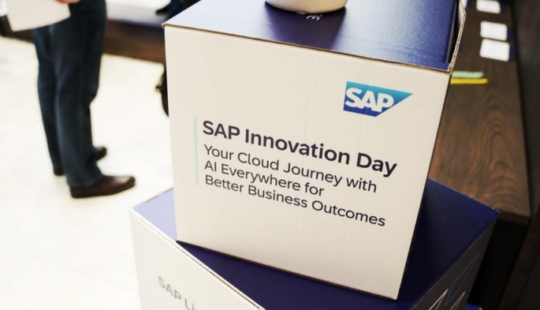The COVID-19 pandemic has become the ultimate stress test for a multitude of industries. Seemingly overnight, businesses have been challenged to marshal a response to this crisis of historic magnitude. Business continuity has never seemed so fragile.
People are weary of navigating this strange world and want to know: How is this going to end?
A Time to Experiment
“We have two endpoints,” said best-selling author Malcolm Gladwell, confident that doctors would become increasingly better at managing the effects of COVID-19 over the coming months. “Milestone number one is, I think, we’re going to see the mortality rate start to drop in the hospitals quite substantially. That’s short to medium term. Longer term, a year to a year and a half, we’ll get a vaccine, which is going to alleviate a lot of our anxiety.”
Gladwell speaks with measured optimism based on his experience as a journalist covering the HIV epidemic for The Washington Post in the 1990s. Having analyzed the nature of viral epidemics for his first book, The Tipping Point: How Little Things Can Make a Big Difference (2000), Gladwell gained popular distinction for his ability to uncover hidden and sometimes counter-intuitive connections among disparate aspects of daily life. With six titles under his name – including Outliers, which debuted at No. 1 on the New York Times best-seller list in 2008 – Gladwell is a prominent public speaker, host of the podcast Revisionist History, and a Member of the Royal Order of Canada.
As a special guest on the thought leadership series SAPPHIRE NOW Unplugged, Gladwell applies that same keen, if provocative, insight to contemplating how businesses can cope with the knock-on effects of the COVID-19 crisis to illuminate new possibilities and drive innovation forward. In conversation with SAP Chief Innovation Officer Max Wessel, Gladwell provides examples of how the constraints and demands of the prolonged crisis can actually spark new ways of thinking about products and services.
“Our task is to experiment,” Gladwell said during the interview. He encouraged SAP customers and business leaders to “rethink your business in this weird time that we are living in.”
Reimagining for the Non-Obvious: Three Industries Transformed
The COVID-19 crisis has brought digital transformation into sharp focus. Businesses are seeing the need for real-time data in the cloud and supply chain resilience. Increased remote interaction – a consequence of social distancing – has amplified the business value of a carefully managed customer experience, as industries that are dependent on gatherings of people need to rethink their offerings. Now is the opportune time to fundamentally reimagine how innovation can reshape experiences by creating new products and services.
Sports: Where Have All the Fans Gone?
Gladwell, a devoted basketball fan, entertained the possibilities for innovation in athletic events, focusing on the question: Can the NBA do their playoffs by the end of summer? Sure, he said. This can be certainly accomplished through a combination of testing and quarantining, but the excitement of the group fan experience is gone.
“So, what are you selling?” he asked with characteristic directness. “Well, now you’re selling something else. You’re selling intimacy.”
You have an opportunity now to reshape the product around the intimacy of the experience and away from the excitement of a group experience, he suggested. Using technology – like cameras, sensors, and robotics – you can capture the up-close sights and sounds of a basketball game for an audience of spectators who are social distancing at home.
For the first time, sports fans will experience the game as if they are on the court with the players and coaches. “You now have permission to experiment in redefining what the experience of watching a basketball game is all about,” Gladwell said.
Environment: Will People in Urban Centers Demand Cleaner Air?
“A lot of the things are non-obvious,” Gladwell noted, as he segued into anecdotal observation about the improvement of air quality in urban centers due to the reduction in traffic congestion during recent weeks. This is interesting to Gladwell because it coincides with recent research about the impact of air quality not only on physical health, but also on cognitive health and learning – and because people seem much happier about it. He sees it as an opportunity to reimagine cities with greater possibilities for electric mobility solutions, green spaces, and bike lanes.
“Will there be public pressure for social changes and innovations to keep the air clean?” he pondered. “I would never have thought, even three weeks ago, that one thing that might come out COVID, this pandemic, is pressure in cities around the world toward maintaining air quality.”
Education: How Can We Create a More Effective Educational System?
Perhaps one of the biggest surprises from the COVID-19 crisis has been the shift to remote learning for students of all ages. Despite the shortcomings in terms of content, technology platforms, and frayed nerves, this period of mass online education has nonetheless been an admirable experiment, one worth learning from and refining.
“This is a period where we can clarify what works and what doesn’t in online learning,” Gladwell suggested with earnestness, himself a product of an academic upbringing. His father, a mathematics professor and his mother, a psychotherapist, fueled his interest in research and writing. He suggested serious research to examine the connection between educational institutions and students, emphasizing the need to address digital inequalities among students.
“This is another golden opportunity for us to rethink the relationship between school institutions and students in a variety of different contexts.”
For more inspiration, fresh ideas, and business analysis, follow the thought leader series SAPPHIRE NOW Unplugged.
Watch a recording of the
full interview with Malcolm Gladwell here.
This article first appeared on the SAP News Center.



